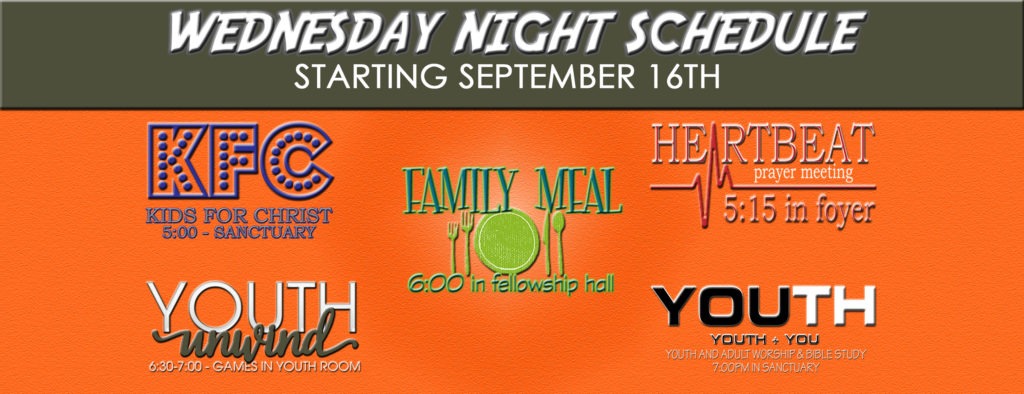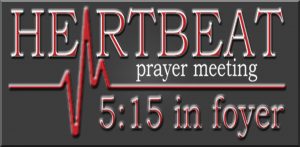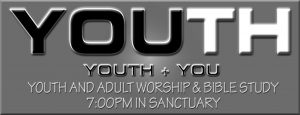Praying For Revival
Psalms 80
August 16, 2020
Tonight we come to the 80th Psalm.
It is yet again a Psalm of Asaph,
And one where the main thrust of the Psalm is easily spotted before us.
We see the same phrase repeated 3 times, and really even a fourth.
(3) “O God, restore us And cause Your face to shine on us, and we will be saved.”
(7) “O God of hosts, restore us And cause Your face to shine on us, and we will be saved.”
(19) “O LORD God of hosts, restore us; Cause Your face to shine upon us, and we will be saved.”
It is literally spelled out in triplicate for us.
Asaph wants reconciliation with God and the salvation that it brings.
The only difference in any of those statements is that each time Asaph mentions them, he adds another reality about God.
• In verse 3 it is just “O God” – which is of course enough, as Asaph even appeals to His authority, glory, and power.
• In verse 7 however it is “O God of hosts” – which brings into play God as the commander of the armies of heaven.
• In verse 19 it is “O LORD God of hosts” – which of course adds the covenantal name of God referring not just to God, but to “our God”.
But he makes essentially the same request at the end of each stanza.
He even makes the same request a FOURTH TIME
In a little different, yet more descriptive way.
(14) “O God of hosts, turn again now, we beseech You; Look down from heaven and see, and take care of this vine.”
It is basically the same request, though the different way of asking it gives us some added insight into exactly what Asaph wants.
1) “O God, restore us”
“restore us” is SHUWB (shoove) in the Hebrew.
It literally means “turn back”
• It can be used negatively as in one who commits apostasy and turns back from following the Lord.
• Or it can be used positively as in one who repents and turns back to the Lord.
Asaph actually uses the SAME WORD IN REFERENCE TO GOD
In verse 14 where he asks God to “turn again now” toward Israel.
This word is really the thrust of the Psalm.
• He is asking for two estranged parties to be reconciled.
• He wants each to turn back to the other.
It is noteworthy however that the One who is called upon
To produce the restoration is not the people here, but God.
• Asaph isn’t preaching to the people telling them to “turn back” to God.
• Asaph is praying to God asking Him to turn the people back to Him and for
Himself to turn back to the people.
If we were Arminian this would seem bizarre since they put all the emphasis on man, but since we aren’t, this makes perfect sense to us.
• A leopard can’t change its spots.
• If repentance is going to occur it is because God must grant it.
• If reconciliation is going to happen, God must initiate it.
• Sinners don’t seek for God.
• Sinners don’t look for God.
• Sinners don’t wake up in the morning and desire God.
God has to instigate that.
Even those who are redeemed but backslidden (as would be the case in this Psalm) often do not instigate revival.
You can likely testify even in your own life of times when you were backslidden and GOD BROUGHT YOU TO REPENTANCE and you realize that it likely didn’t start with you but with God first grabbing you to turn you back to Him.
This is what makes prayer so essential regarding revival.
If God and sinners are estranged,
Who do you think is more likely to make the first move?
You get the idea.
Asaph is praying to God asking Him to reconcile and “restore”
Wayward Israel back to Himself.
2) “And cause Your face to shine upon us”
You likely pick up on that phrase as that priestly blessing.
Numbers 6:25-26 “The LORD make His face shine on you, And be gracious to you; The LORD lift up His countenance on you, And give you peace.’”
This is the other side of the coin.
Asaph not only wants estranged man to return to God,
But he is also asking offended God to return to man.
For man to return repentance is required.
For God to return mercy is required.
And that is certainly what Asaph prays for throughout this Psalm.
3) “and we will be saved.”
The end objective is also clear.
Asaph wants the people of Israel to be “saved”
Very rarely does the word “saved” in the Old Testament
Mean the same thing as we commonly see it in the New Testament.
Rather when Asaph prays for salvation
He is asking for deliverance from their enemies.
The idea is that
• Israel has turned away from God.
• God has in response given Israel over to their enemies.
• Asaph is praying for reconciliation and the deliverance that accompanies it.
This is really the thrust of the Psalm.
He wants revival that results in deliverance.
Verses 14-16 seem to give great CLARIFICATION to this.
(14-16) “O God of hosts, turn again now, we beseech You; Look down from heaven and see, and take care of this vine, Even the shoot which Your right hand has planted, And on the son whom You have strengthened for Yourself. It is burned with fire, it is cut down; They perish at the rebuke of Your countenance.”
Asaph wants God to turn back to Israel.
• He wants God to again care for this vine, because this vine has been “burned with fire”, “cut down”, and it is perishing.
And that gives us some insight into the CONTEXT of this Psalm.
THE EXACT SETTING IS DIFFICULT.
• Some set it during the period of Isaiah as the northern kingdom was being attacked by the Assyrians and the southern kingdom was being threatened with the same.
• The Septuagint actually labels it “Concerning The Assyrian”
• They do this because you see a clear reference to the tribes of “Ephraim…and Manasseh” which were destroyed in the Assyrian invasion.
So the setting of the Psalm must be before that.
• “Benjamin” is also mentioned with them which must link the trial to more than just the northern kingdom since “Benjamin” was part of the southern kingdom along with Judah.
Another option is that these 3 tribes are mentioned to sort of
Seek to MOVE GOD TO QUICKER and greater compassion.
• Often times when Israel is referred to it is referred to as “Jacob”.
• When just the northern kingdom is in view the prophets prefer “Ephraim”
• When just the southern kingdom is in view the prophets prefer “Judah”
But this Psalm addresses them a little differently.
• Jacob isn’t mentioned, rather it is Joseph, who of course was the favorite son
of Jacob since he was the son of Rachel.
• And the tribes that are mentioned are the 3 tribes that are mentioned are the 3
tribes which came from Rachel; Ephraim and Manasseh being Joseph’s sons and Benjamin being his younger brother through Rachel.
Perhaps there is a special play going on here
Where Asaph seeks to sort of appeal to the “heart strings” of God
In an effort to move God to compassion.
This isn’t Simeon or Reuben or wicked Judah we’re talking about here.
It’s Rachel’s boys that are suffering.
Perhaps mercy is the goal.
BUT EITHER WAY IT MAKES THE EXACT SETTING DIFFICULT.
What is clear is that all Israel is under some kind of siege.
This Psalm contains sort of A BRIDGE.
(8-13) “You removed a vine from Egypt; You drove out the nations and planted it. You cleared the ground before it, And it took deep root and filled the land. The mountains were covered with its shadow, And the cedars of God with its boughs. It was sending out its branches to the sea And its shoots to the River. Why have You broken down its hedges, So that all who pass that way pick its fruit? A boar from the forest eats it away And whatever moves in the field feeds on it.”
Asaph reminds God that He started something with Israel that He has yet to finish.
• He made the decision to rescue them from Egypt…
• He made the decision to clear Canaan of the pagan people…
• He made the decision to plant Israel there…
• He even allowed Israel to be established, to grow, and to spread…
But now they are afflicted and Asaph seems PERPLEXED.
“Why have You broken down its hedges, so that all who pass that way pick its fruit?”
• Even in verse 4 he asked “How long will you be angry with the prayer of Your people?”
There is now a discord.
There is now a separation.
Israel has strayed, God is angry, and Israel is suffering.
There are TWO PASSAGES IN ISAIAH that speak so similar to this issue
That it helps us understand to an even greater extent
What was going on behind this Psalm.
TURN TO: ISAIAH 5:1-7
• We’ve looked at this many times.
• The youth just looked at it Wednesday night.
But it is almost the exact same thing that Asaph is saying here.
We have a vineyard owner who went to great lengths
To establish his vineyard, but he ends up laying it waste.
Asaph asked why, but Isaiah told us.
(2b) “then He expected it to produce good grapes, but it produced only worthless ones.”
Because the vineyard failed to produce fruit
The vineyard owner made a decision
To do exactly what Asaph just witnessed.
(5-6) “So now let Me tell you what I am going to do to My vineyard: I will remove its hedge and it will be consumed; I will break down its wall and it will become trampled ground. “I will lay it waste; It will not be pruned or hoed, But briars and thorns will come up. I will also charge the clouds to rain no rain on it.”
If the vineyard won’t produce fruit
Then I’m not going to keep working it, defending it, or watering it.
The parable finally gives us insight at the end.
(7) “For the vineyard of the LORD of hosts is the house of Israel And the men of Judah His delightful plant. Thus He looked for justice, but behold, bloodshed; For righteousness, but behold, a cry of distress.”
This would be the exact answer to Asaph’s question
As to why God had broken down the hedges of His vineyard.
Israel had rebelled against God
And failed to give Him the righteousness and justice He required.
THAT IS CLEAR.
But there is even more here than just simple cause and effect.
GOD IS NOT JUST DISTANT, HE IS ANGRY.
Asaph referenced that is (4b) “angry with the prayer of [His] people”.
ISAIAH ALSO EXPLAINS THAT.
TURN TO: ISAIAH 1:1-17
Isaiah 1 begins with the lament of God because
His sons no longer honor Him as a son should honor their father.
(READ 1-3)
• You will notice that Asaph will refer to Israel as the (15) “the son whom You have strengthened for Yourself”
• And as (17) “the man of Your right hand”
• And as (17) “the son of man whom You made strong for Yourself”
Asaph saw them as a rejected son.
Isaiah 1 reveals that the rejection did not start with God, but with Israel.
The refused to honor God as He deserved.
Not only that, but as a corporate people they turned away from God.
(READ 4)
And the result of their apostasy was that God severely punished them.
(READ 5-9)
• From the top of their head to the sole of their feet God had stricken Israel and still they had not repented.
• It had gotten so bad that the only reason they weren’t completely destroyed like Sodom was because of the covenantal promise of God to leave some as survivors.
It pictures the defection and the punishment that Asaph is talking about.
But it also explains the anger of God.
(READ 10-15)
Do you see it?
• God is angry; He doesn’t even want to hear their prayers.
• They are so far removed from what He wants them to be that He is actually hiding His eyes from Israel and covering His ears from their prayers.
Now, I give you all of that just so you will understand
The situation behind this Psalm.
Asaph is writing Psalms 80 as a prayer to God
In hopes that these two sides can be reconciled to one another.
It is a prayer for revival and it is a needed one.
• That is why 3 times Asaph asks God to intervene and turn Israel back.
• That is why 3 times Asaph asks God to be merciful and turn again to Israel.
• That is why 3 times Asaph asks for revival so that deliverance might occur.
And just that setting gives us hope that no situation is too drastic
That we cannot pray for the revival of God’s people.
Asaph is praying for revival and it is sorely needed.
Now in that, let’s look at his 3 requests to God.
(We learn about praying for revival)
#1 YOUR PREFERENCE IS NEEDED
Psalms 80:1-3
When we speak of preference we are talking about
That sovereign bias that God demonstrated toward Israel.
It is what Calvinists refer to as “Unconditional Election”.
Namely that God sovereignly chose to set His preference and love
On a people who did not deserve it.
It is peculiar and marvelous, but real none the less.
• We saw God sovereignly electing Abram out of Ur of the Chaldeans.
• We saw God pass that election on to Isaac and Jacob.
Through Moses God even spelled it out.
Deuteronomy 7:6-8 “For you are a holy people to the LORD your God; the LORD your God has chosen you to be a people for His own possession out of all the peoples who are on the face of the earth. “The LORD did not set His love on you nor choose you because you were more in number than any of the peoples, for you were the fewest of all peoples, but because the LORD loved you and kept the oath which He swore to your forefathers, the LORD brought you out by a mighty hand and redeemed you from the house of slavery, from the hand of Pharaoh king of Egypt.”
There was no reason why God should have
Chosen Abram or his descendants, but He did.
We are familiar with that tremendous analogy in Ezekiel 16 where Israel is likened to a newborn baby thrown out into the field to die.
• It was unwanted
• It was unimportant
• It was helpless
But God chose to give life to it and set His love upon it.
Asaph is referring to that kind of preference here.
For whatever reason, God has chosen these people,
And Asaph is calling upon that sovereign election here.
Notice how he APPROACHES God.
(1) “Oh, give hear, Shepherd of Israel, You who lead Joseph like a flock;”
• It brings imagery to our minds of David’s tremendous 23rd Psalm, and the blessing of being one of God’s sheep.
• God leads them and cares for them and provides for them and protects them.
• And ultimately God leads His sheep safely home.
You know the Psalm.
And Asaph brings that reality up here.
• God, You are our Shepherd.
• You are our only Shepherd.
He’s not arguing that they have been good sheep,
Only that they are His sheep.
And you understand the point here.
Just because a shepherd has wayward sheep doesn’t make him any less committed to the care of those sheep.
• They may be rebellious…
• They may be dumb…
• They may be prone to wander…
• But if they are your sheep, you care for them.
Asaph brings that to God.
You are our Shepherd.
But it’s not just OBLIGATION, it’s also about AUTHORITY.
“You who are enthroned above the cherubim, shine forth!”
He is no ordinary shepherd.
• He is also the sovereign and holy God of the universe
• Who sits upon the throne higher even than the angels.
He is not only obligated to save the sheep, He has the authority to do it.
• He has the authority to rebuke any wolf.
• He has the authority to turn away any lion.
And beyond that, He has the POWER to handle them as well.
(2) “Before Ephraim and Benjamin and Manasseh, stir up Your power And come to save us!”
You are strong enough to deliver!
IT IS JUST A SIMPLE PICTURE OF
• Sheep who have wandered off and have found themselves in danger.
• And though they earlier were escaping their shepherd, they are now in great need of him.
• And the only hope and sole desire of the sheep is to see their strong and glorious shepherd come over the hill top to save them.
We used to have a Basset Hound named “Daisy”.
• She was a typical basset in the sense that she was “prone to wander”
• They’ll put their nose down and not know where they are when they get done.
• Several times Daisy escaped from our yard, followed her nose and got lost.
• So I would go looking for her.
• Every time I would find her (sometimes no more than a block away) she would
light up and come running to me whimpering like I was the greatest hero she had ever seen.
• When she got in danger she needed her owner to find her.
These sheep are in that situation.
Asaph is calling for God to once again demonstrate
His sovereign preference of them, and go find them once again.
God, rise up in Your glory, stand up in Your power,
And come get Your sheep.
And then the first of 3.
“O God, restore us And cause Your face to shine upon us, and we will be saved.”
That is how you pray for revival.
• Certainly when we preach for revival we call for repentance,
• But when we pray for revival we appeal to the sovereign grace of God who chose us when we were sinful, and who must restore us again when we are wayward.
Asaph cries out that God’s preference for them is needed.
#2 YOUR PUNISHMENT IS SUFFICIENT
Psalms 80:4-7
There is really NO REQUEST made in this section.
It is just a question.
(4) “O LORD God of hosts, How long will You be angry with the prayer of Your people?”
We read Isaiah 1 and we know why God is angry with the prayer of His people.
Isaiah 1:10-15 “Hear the word of the LORD, You rulers of Sodom; Give ear to the instruction of our God, You people of Gomorrah. “What are your multiplied sacrifices to Me?” Says the LORD. “I have had enough of burnt offerings of rams And the fat of fed cattle; And I take no pleasure in the blood of bulls, lambs or goats. “When you come to appear before Me, Who requires of you this trampling of My courts? “Bring your worthless offerings no longer, Incense is an abomination to Me. New moon and sabbath, the calling of assemblies — I cannot endure iniquity and the solemn assembly. “I hate your new moon festivals and your appointed feasts, They have become a burden to Me; I am weary of bearing them. “So when you spread out your hands in prayer, I will hide My eyes from you; Yes, even though you multiply prayers, I will not listen. Your hands are covered with blood.”
God was angry at their prayer because it was superficial.
• They only prayed to keep God off their back while they continued in the sin they loved.
• It was hypocrisy and God hated it.
Asaph doesn’t question God’s right to be angry,
He only asks “How long will You be angry..?”
The punishment was certainly justified.
The punishment was certainly just.
But now Asaph appeals to the mercy of God
That perhaps His anger might now subside.
And to do that, Asaph LAYS OUT FOR GOD the plight of the people.
(5-6) “You have fed them with the bread of tears, And You have made them to drink tears in large measure. You make us an object of contention to our neighbors, And our enemies laugh among themselves.”
• Again, as we said last week, it’s not that God isn’t aware of their suffering.
• Asaph is not enlightening God here.
Rather, Asaph is merely restating their suffering once again to God
That he might move God to compassion and mercy.
It’s his way of saying,
“You have punished them severely, please now relent.”
He wants God to be moved with mercy.
This is also a fitting prayer for revival.
• Not only do we remind God of His sovereign grace to choose us,
• But we also appeal to God’s great mercy and compassion to forgive us, and deliver us from our self-inflicted wounds.
Asaph simply hopes that God will look upon
The punishment He has inflicted and say it is enough.
Your Preference Is Needed; Your Punishment Is Sufficient
#3 YOUR PLAN IS UNFINISHED
Psalms 80:8-19
We already looked at verses 8-13 and remembered how Israel was the beneficiary of God’s sovereign election.
• We remember the miracle of the Exodus.
• We remember the miracle of the Conquest.
• We remember the miracle of the David Kingdom and how Israel grew.
But at the present it all looks for not.
(13) “A boar from the forest eats it away And whatever moves in the field feeds on it.”
• Specifically Assyria was making their way through the Northern Kingdom and laying it waste.
• They were even threatening the Southern Kingdom of Judah.
It is what sparked the request of Asaph.
(14-16) “O God of hosts, turn again now, we beseech You; Look down from heaven and see, and take care of this vine, Even the shoot which Your right hand has planted, And on the son whom You have strengthened for Yourself. It is burned with fire, it is cut down; They perish at the rebuke of Your countenance.”
Very simply Asaph just wants God to intervene and stop the onslaught.
• See what is happening…
• This is Your vine!
• They are attacking it!
• Everything that You purposed for this vine is being ruined.
• Everything that You promised for this vine is being undone.
• What You started has not been completed.
And yet another request.
(17-18) “Let Your hand be upon the man of Your right hand, Upon the son of man whom You made strong for Yourself. Then we shall not turn back from You; Revive us, and we will call upon Your name.”
The son here is Israel.
And he is a son who was once strengthened by God but is now in peril.
THINK OF THE PRODIGAL HERE IF YOU WILL.
And the request is that God, by His sovereign power, and great mercy would “Let [His] hand be upon the man of [His] right hand, upon the son of man whom [He] made strong for [Himself].”
He is asking God to mercifully receive His wayward son back to Himself and once again restore Him and finish what He started.
(18) “Then we shall not turn back from You; Revive us, and we will call upon Your name.”
He simply says that
If God will come get them, forgive them, and restore them,
Then they will stay true to God forever.
And again that common prayer.
(19) “O LORD God of hosts, restore us; Cause Your face to shine upon us, and we will be saved.”
It is very simply Asaph’s prayer for revival.
• That God would remember His preference of Israel.
• That God would be merciful to their punishment.
• That God would restore them as His son and finish what He started.
It is certainly a model prayer for revival.
We would certainly be inclined to pray this way even today for the church.
BUT LET ME GO AHEAD AND GIVE YOU THE PROBLEM.
TURN TO: 2 KINGS 17:6-23
Even though Asaph pleaded with God to come save, forgive, and restore Ephraim and Manasseh, HE DID NOT.
At least not in the way Asaph surely hoped.
But here is where we must turn again to the gospel.
Asaph prayed that God would be Israel’s shepherd and come save the sheep.
He did.
John 10:11-15 “I am the good shepherd; the good shepherd lays down His life for the sheep. “He who is a hired hand, and not a shepherd, who is not the owner of the sheep, sees the wolf coming, and leaves the sheep and flees, and the wolf snatches them and scatters them. “He flees because he is a hired hand and is not concerned about the sheep. “I am the good shepherd, and I know My own and My own know Me, even as the Father knows Me and I know the Father; and I lay down My life for the sheep.”
• Jesus was exactly the shepherd that Asaph prayed for.
• He came in authority and power to save.
• Jesus is the Good Shepherd.
Asaph also wondered if the punishment of God on Israel had not been sufficient?
The answer is that it had not.
• God continued with the annihilation of the Northern Kingdom.
The reality is that temporal suffering will never satisfy the debt of our sin.
• The Bible has been emphatic that the wages of sin is death, not suffering.
• The wages of sin is death not just eating the bread of tears.
• The wages of sin is death not just drinking tears in large measure.
• The wages of sin is death not just being an object of contention to your neighbor.
• The wages of sin is death not just being a laughingstock.
And for this we see Christ again as the suffering servant
Who came and bore God’s wrath to finally satisfy His fury.
1 Peter 2:24-25 “and He Himself bore our sins in His body on the cross, so that we might die to sin and live to righteousness; for by His wounds you were healed. For you were continually straying like sheep, but now you have returned to the Shepherd and Guardian of your souls.”
Asaph also lamented this chosen vine that was now destroyed.
It was destroyed because it failed to produce fruit.
But Jesus said:
John 15:1-5 “I am the true vine, and My Father is the vinedresser. “Every branch in Me that does not bear fruit, He takes away; and every branch that bears fruit, He prunes it so that it may bear more fruit. “You are already clean because of the word which I have spoken to you. “Abide in Me, and I in you. As the branch cannot bear fruit of itself unless it abides in the vine, so neither can you unless you abide in Me. “I am the vine, you are the branches; he who abides in Me and I in him, he bears much fruit, for apart from Me you can do nothing.”
God didn’t simply overlook the fruitlessness of this wayward vine,
He sent Jesus to be the true vine
That they could tap into for their fruit of righteousness.
And Asaph prayed that God would restore His son Israel to His right hand.
Instead God sent His Son,
Who would be exalted back to His right hand
That He might restore the wayward sons back to God.
John 1:11-13 “He came to His own, and those who were His own did not receive Him. But as many as received Him, to them He gave the right to become children of God, even to those who believe in His name, who were born, not of blood nor of the will of the flesh nor of the will of man, but of God.”
The simple gospel point is that Asaph longed for revival,
And God did send it when He sent Christ.
He sent Christ to be what they were not.
They were wayward sheep deserving of death
• Christ was the Good Shepherd who laid down His life for them.
They were a fruitless vineyard deserving of destruction
• Christ was the True Vine who provided them with the fruit of righteousness they did not have.
They were the prodigal son under judgment
• Christ came in humanity as the true Son of Man that He might fulfill their righteous obligation and reconcile them to the Father as children of God.
Everything Asaph prayed for was ultimately fulfilled in Christ.
AND THUS HE REMAINS THE ONLY HOPE FOR REVIVAL.
So now, when we pray for revival,
• We don’t pray that God would simply overlook our sin,
• But rather we run to Christ because in Him we have forgiveness and fruit and
reconciliation.
And we pray for men to run to Christ that they might have the same.
Revival occurs when Christ is exalted
Because it only occurs through Him.








